Does Tattoo Ink Expire?: Everything You Need To Know
Keep your body art in line with the latest trends, but not with outdated ink.
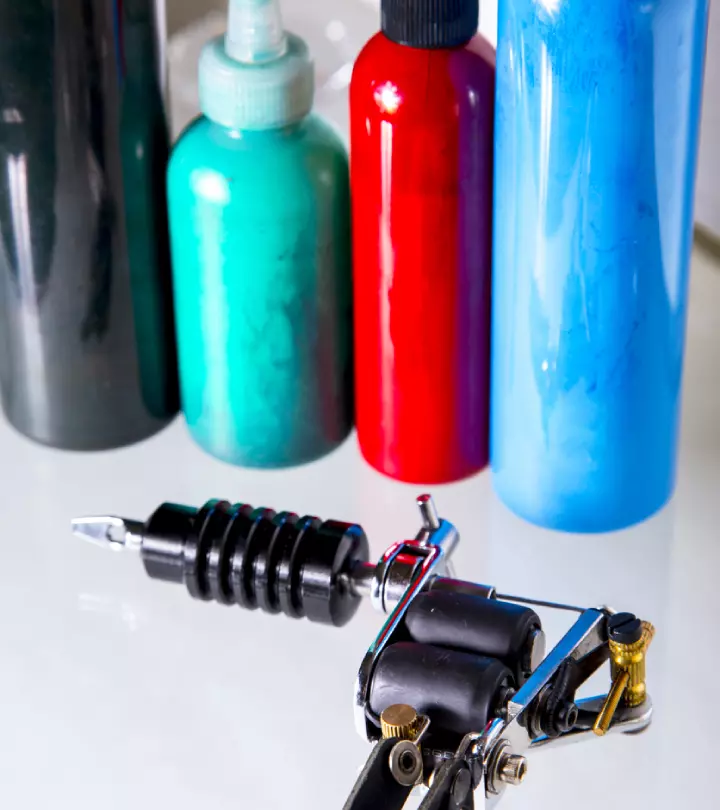
Image: iStock
Tattoos stand as enduring expressions of personal stories and artistic flair. However, the question that often lingers in the minds of both tattoo enthusiasts and novices is, “Does tattoo ink expire?” For a tattoo’s longevity and vibrancy, ink plays a crucial role. In this article, we will discuss the factors influencing the expiration of tattoo ink, from the chemistry of pigments to the role of expiration dates, empowering you with the knowledge needed to make informed decisions about your body art choices. Buckle up and join us on this journey where science meets art, as we uncover everything you need to know about the expiration of tattoo ink.
In This Article
How Long Does Tattoo Ink Last?
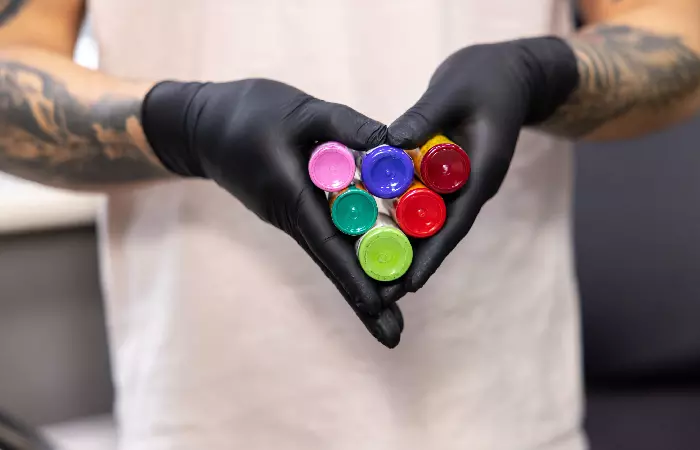
Tattoo ink usually lasts for about two years. This gives professional tattoo artists enough time to use it before expiration. Many artists run out of ink even before the expiry date, especially if they mainly use black and gray ink. If you are not a frequent artist or do not use a lot of colored ink, be mindful of the two-year limit. Reputable tattoo ink brands provide labels with expiration dates and lot numbers, facilitating tracking and ensuring safety standards. The same goes for UV tattoo ink as well. However, explore its unique considerations in the next section.
Key Takeaways
- Standard tattoo ink typically lasts around two years, allowing ample time for usage.
- Using expired tattoo ink poses risks of contamination, faded colors, and potential health issues like infections.
- Properly storing tattoo inks can maximize their shelf life.
How Long Does UV Tattoo Ink Last?
UV tattoo ink typically lasts as long as traditional tattoo ink, which is around two years. Just like regular ink, UV ink quality can be affected by factors like exposure to sunlight and skin type. It is important to follow proper aftercare and protect your UV tattoo from excessive sun exposure to maintain its vibrancy for as long as possible.
 Did You Know?
Did You Know?In the next section, we have discussed one of the most frequently asked questions: Do tattoo inks go bad? Scroll down to learn more about it.
Does Tattoo Ink Go Bad?
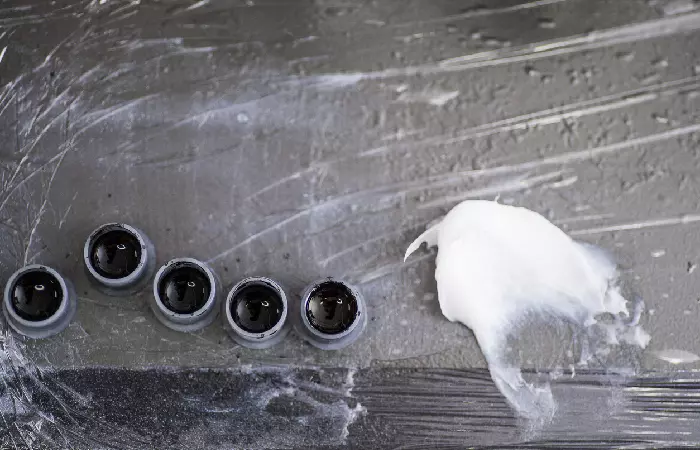
Yes, tattoo ink can go bad. While the ink itself does not have a specific expiration date, it becomes susceptible to contamination once opened. Tattoo artists must avoid using ink past the recommended timeframe. Proper ink storage involves keeping it in a sterile, cool, and dark place with a sealed lid. Opening the ink exposes it to air, increasing the risk of contamination, so it is best to open it only when necessary. Researching the manufacturer’s hygiene standards before buying the ink is also advisable to ensure its quality.
As we have established that tattoo ink can indeed go bad, let us explore the consequences of using ink past its prime.
What Happens If You Use Expired Tattoo Ink?
- Risk Of Contamination
Expired tattoo ink is prone to contamination, promoting the growth of harmful bacteria and skin infections. Bacterial infections can cause severe skin damage, including irritations, rashes, sepsis, swelling, pus formation, and scabbing.
- Faded And Dull Colors
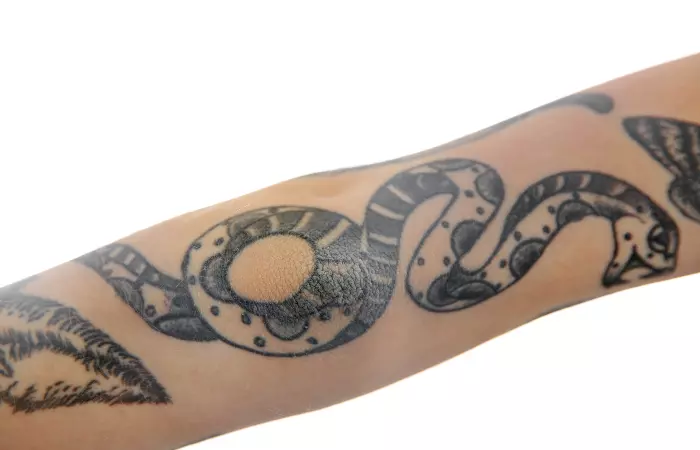
Expired ink may result in early tattoo fading marked by poorly executed designs or dull colors of the tattoo. While disappointing, it is not inherently dangerous.
- Long-Lasting Health Complications
Using expired ink may even lead to long-lasting health issues such as severe skin infections, lung disease, hepatitis, and tetanus.
We can prevent these potential consequences of using expired tattoo ink and ensure a safe and vibrant tattooing experience by identifying the signs of compromised ink. Read on for more on this.
How To Tell If Tattoo Ink Is Bad
- Visual Inspection
Always examine tattoo inks for any changes in appearance, consistency, or separation of elements within the bottle before using them for tattooing.
- Expiration Date
Check the expiration date on the ink bottle. If the ink has surpassed its expiration date, it must be discarded, regardless of its apparent condition.
- Storage Conditions
If the ink has not been stored properly, dispose of it. Proper storage conditions are crucial to maintaining ink quality and preventing contamination.
- Changes In Smell
Expired tattoo ink may have a sour, rancid smell, resembling a strong chemical odor. This unusual smell can be immediately noticeable upon opening the bottle.
- Consistency Changes
Examine the texture of the ink; expired ink may appear thin or have a semi-liquid consistency with visible chunks. Oils and pigments separating, even after shaking, indicate potential expiration.
- Color And Opacity Changes
Expired ink may show changes in color or opacity, resulting in less vibrancy. When applied to the skin, the designs may appear dull, lacking the desired intensity.
- Evaporation
Check for signs of evaporation, as broken seals can lead to the ink drying out over time. Dried or inconsistent consistency may make the ink unsuitable for tattooing.
 Quick Tip
Quick TipKnowing what makes tattoo ink expire quickly is essential for maintaining the integrity of your ink collection. Scroll down to explore these factors.
What Makes Tattoo Ink Expire Quickly?
Keep an eye out for the below factors and avoid them to preserve your tattoo ink properly for its entire shelf-life.
- Extreme Temperatures
Exposure to extreme temperatures can lead to changes in the chemical composition of the ink, making it expire faster.
- Opening The Bottle
Once the ink bottle is opened, it becomes more susceptible to contamination, increasing the risk of infection during the tattooing process.
- Cross-Contamination
Cross-contamination, especially when using the same ink cap or tattoo needle, can compromise the ink and accelerate expiration.
- Damage To The Ink
Physical damage to the ink bottle can expedite expiration, affecting the quality of dynamic colors and common colors used in your designs.
- UV Rays And Radiation
Exposure to UV rays and radiation can contribute to the degradation of tattoo ink, making it expire faster.
- Autoclave Impact
Incorrect autoclave procedures can affect the sterility of the ink, leading to quicker expiration.
- Absence Of Preservatives
The absence of preservatives or microbial growth inhibitors can allow for microbial contamination, further emphasizing the importance of maintaining a sterile environment.
- Product Alteration
Any alterations to the original tattoo ink formulation can impact its stability and contribute to a quicker expiration.
Scroll down to the next section to explore the best practices for storing tattoo ink, ensuring its longevity, and maintaining the quality needed for artistic endeavors.
How To Store Tattoo Ink
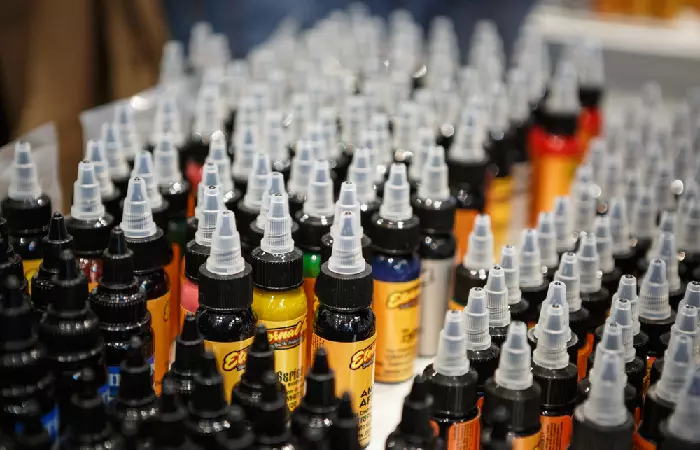
- Store ink bottles in an airtight container, in a dark and cool place.
- Properly label ink bottles with the purchase date to track their age and identify any expired products.
- Keep the tattoo ink at room temperature to prevent freezing or separation, avoiding extreme conditions.
- Store ink in a shaded area to prevent prolonged exposure to sunlight, which can lead to evaporation and drying.
- Use plastic caps with sturdy bases to prevent spills and staining during storage.
- Do not pump air into the bottle to preserve ink quality.
- Do not add anything else to the ink to maintain its integrity.
- Do not dip needles directly into the plastic bottle to prevent contamination.
In the world of tattoos, the lifespan of ink is a critical consideration. With a standard two-year shelf life, proper storage, reputable sources, and adherence to expiration dates play key roles in preserving these inks. Whether it is traditional or UV tattoo ink, the principles remain constant – preserve, protect, and discard when necessary. Using expired ink carries risks, from faded colors to health issues. Visual checks, following dates, and optimal storage are crucial for safety. Remember, each drop of ink carries the weight of a story, and understanding ink expiration and storage is essential for a confident and safe tattooing experience.
Frequently Asked Questions
How do I safely dispose of expired tattoo ink?
Seal the bottle tightly and dispose of it according to local hazardous waste guidelines. Avoid pouring it down the drain.
What should I do if I suspect my ink is contaminated?
Stop using the ink immediately. Dispose of it safely and contact the supplier if you believe the contamination happened before purchase.
How long does tattoo ink last once opened?
Once opened, tattoo ink typically lasts for about 12 to 18 months. However, this can vary based on factors like storage conditions and ink quality.
Does tattoo ink expire if unopened?
Yes, tattoo ink can expire even if unopened. The expiration date is determined by the manufacturer and is influenced by factors like preservatives, storage conditions, and ink composition.
How long is tattoo ink good after its expiration date?
The effectiveness of tattoo ink after its expiration date can vary. It’s generally advisable not to use ink past its expiration, as it may lead to color changes, contamination, or potential health risks.
Where is the expiration date on tattoo ink?
The expiration date is typically found on the label of the tattoo ink bottle. Reputable manufacturers provide clear labeling, including the expiration date and lot number for tracking purposes.
Illustration: Does Tattoo Ink Expire? Everything You Need To Know
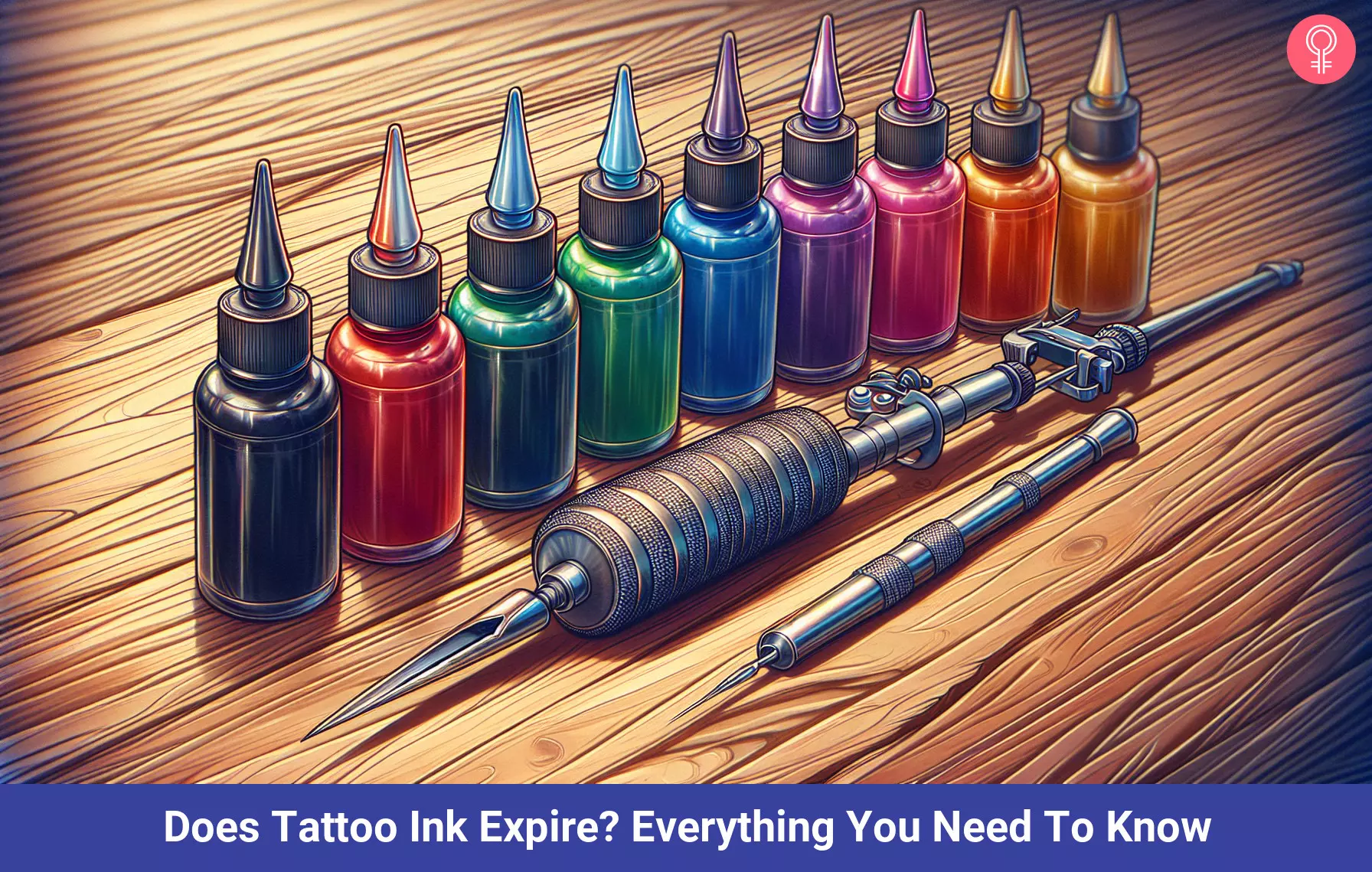
Image: Stable Diffusion/StyleCraze Design Team
Discover the truth about tattoo pigment expiration from an expert tattoo artist as he advises how and where to buy inks. Watch this insightful video and make informed choices for a safe and long-lasting tattoo experience.
Read full bio of Anastasiia Gatsko
Read full bio of Manjari Uppal
Read full bio of Shatabdi Bhattacharya
Read full bio of Joyce Joyson






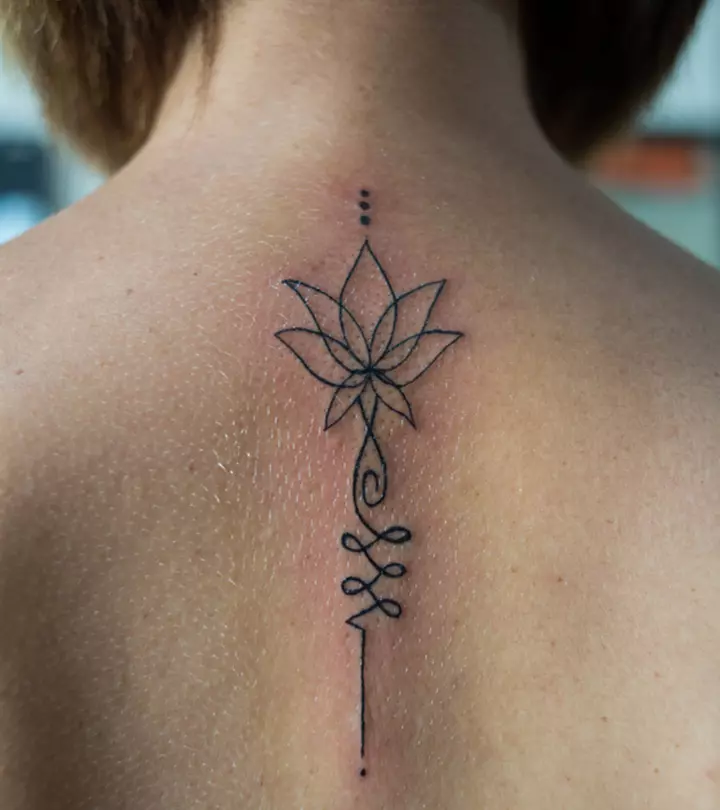




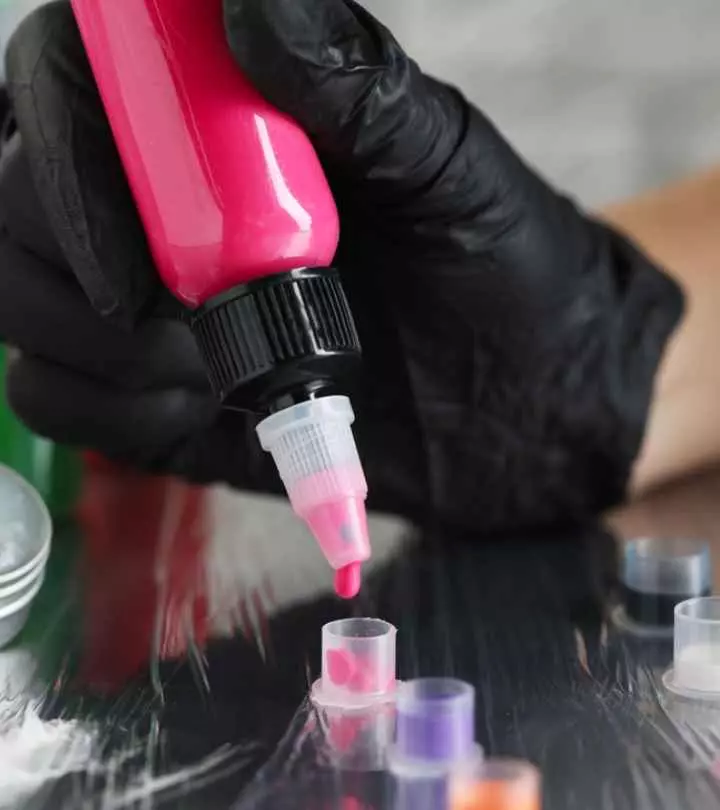

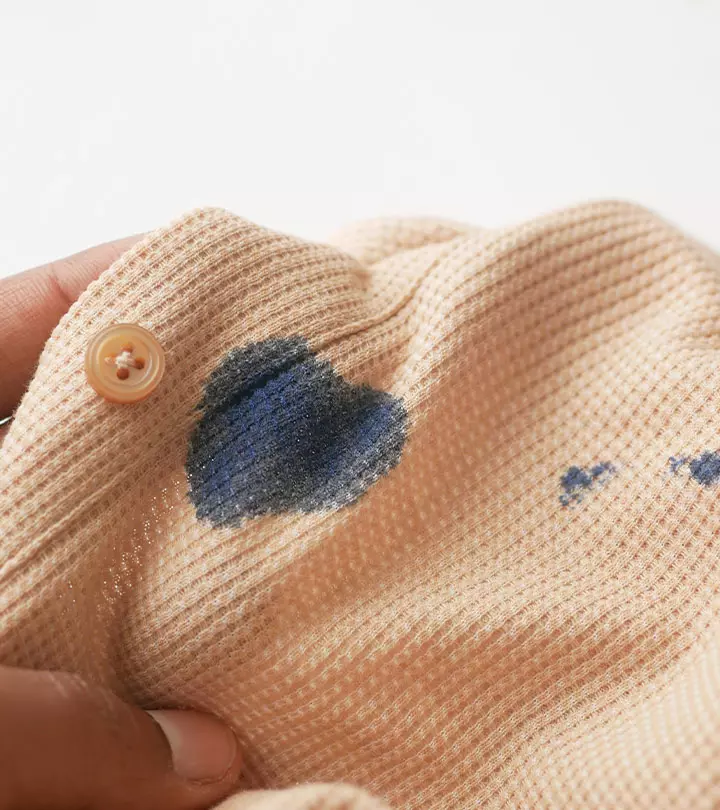
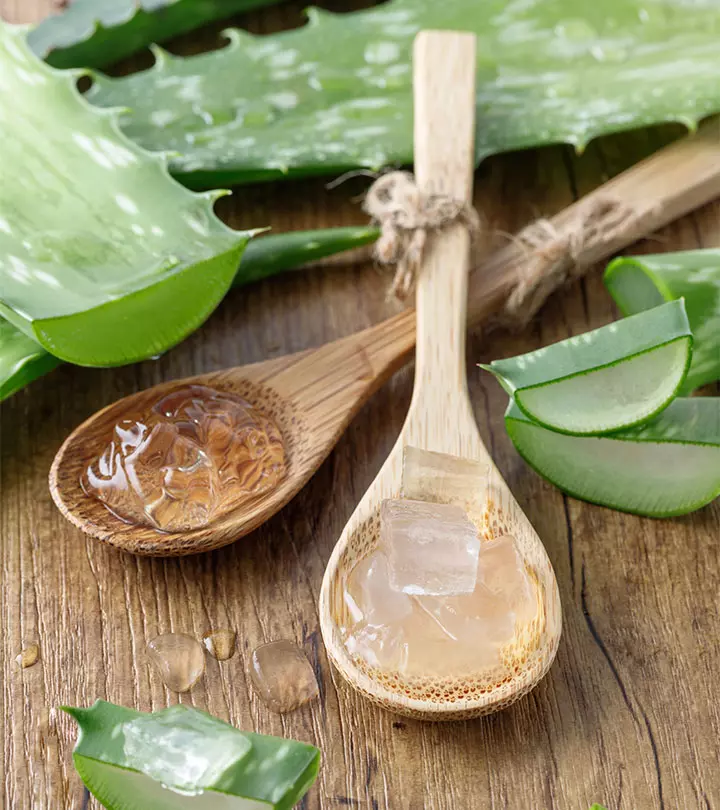





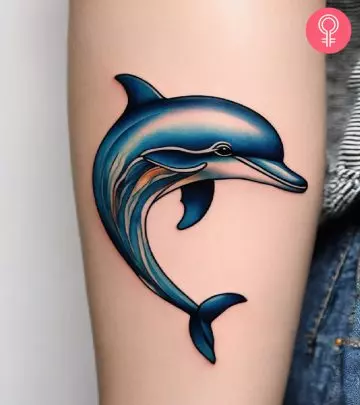
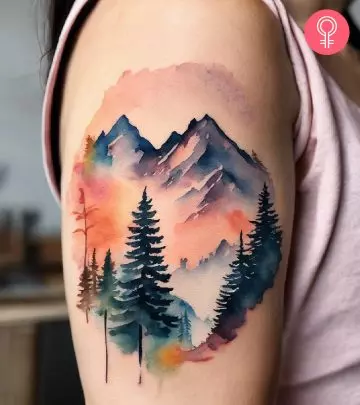


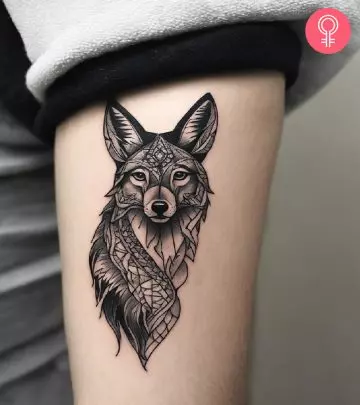


Community Experiences
Join the conversation and become a part of our empowering community! Share your stories, experiences, and insights to connect with other beauty, lifestyle, and health enthusiasts.